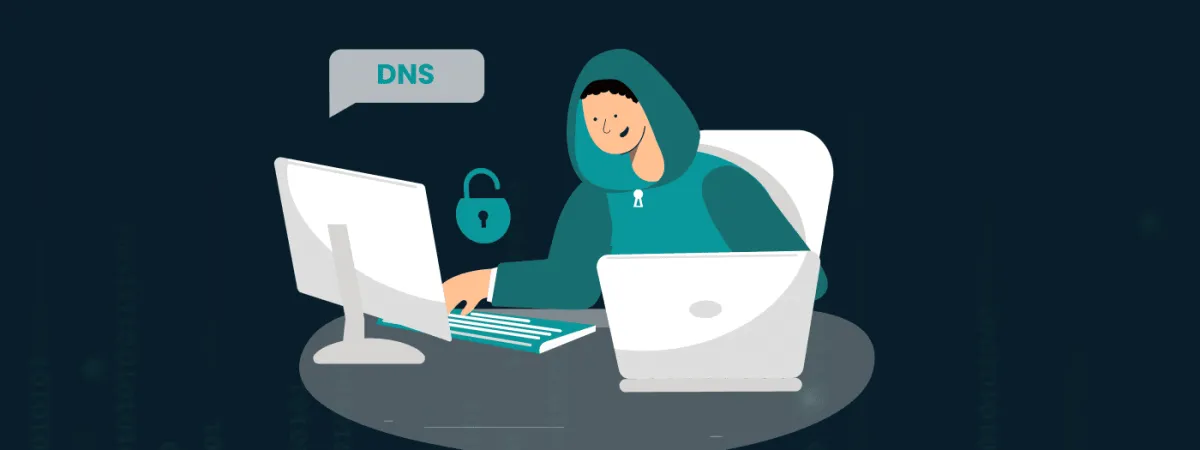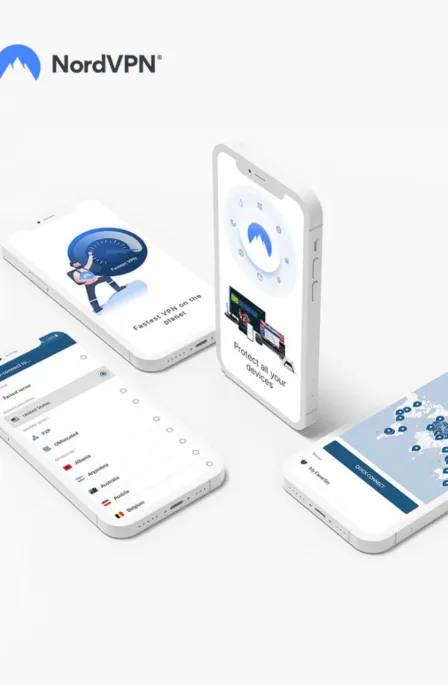DNS Hijacking, also termed DNS Redirecting or DNS Poisoning, is a stratagem used by cyber pillagers by which they trample upon a computer’s IP settings to block access, restrict, and censor content.
The hijacker directs a computer’s IP settings to a rogue DNS server instead of the user-friendly domain names by overriding a computer’s IP settings. This can also be achieved by directly monitoring and probing the traffic at imperative routing spots.
The Great Firewall of China, which the government uses to achieve Internet censorship in China, is the most prominent example of DNS hijacking.
What is DNS?
Domain Name Service is abbreviated as DNS. It is an Internet service that translates URLs such as Google.com to an IP address 8.8.8.8. Every website has an IP address linked to its URL via DNS. The DNS server holds a record of the IP address of every website along with the corresponding URL. Here, the URL depicts the name, and the IP address shows the address, just like a phone book holding records of the enlisted people with their addresses.
The DNS system is functioned by your ISP (Internet Service Provider) and many other private business organizations. Many companies publish the website’s DNS address and an algorithm that keeps them updated simultaneously. Your computer is configured to use the ISP’s DNS server. But these settings can be changed manually.
DNS Hijacking – Mechanism
When you enter a URL into your browser’s address bar, it is sent to a DNS server to resolve into an IP address, mapping you to your friendly domain names. However, a wrong DNS server is often reached due to insufficient checks and balances.
An attacker might hijack the DNS, functioning between the computer and the DNS server, from a rogue device. If that’s the case, the hacker now owns the DNS server, as he might have changed the DNS settings and gained access to your computer.
Now comes the point where the DNS server contaminates its records by swapping the IP addresses of the sites you visit with those of another site that might be infected with malware.
If an experienced hijacker carries out DNS hijacking, he might masquerade websites. As a result, he may compile sensitive information about users and many websites’ passwords and IP addresses. In many cases, DNS hijacking is also carried out by using sophisticated malware such as a trojan horse. The DNSChanger trojan is a form of malware that profited about 14 million USD by hijacking the DNS settings of over 4 million computers through deceptive advertising revenue.
DNS Hijacking – Censoring the Internet
Internet censorship is enforced by many countries requiring Internet Service Providers to cut off specific domains from their DNS servers. However, this is a comparably easy form of hoodwinked censorship.
On the other hand, when a hijacker operates the whole network, he can restrict and block contractual DNS servers entirely or apply Deep Packet Inspection to block or misdirect requests specifically.
DNS Hijacking – Prevention
After going through the dangers you are exposed to with DNS hijacking, we will share the easiest way to prevent DNS hijacking.
Domain Name System Security Extensions, abbreviated as DNSSEC, can be considered a DNS hijacking analysis used to verify the integrity of the DNS server and for protection purposes. DNNSEC minimizes the chances of a hijacker masquerading as a DNS, but it is tough for a user to set up, validate, and monitor, unlike HTTPS in web servers.
A good antivirus program can protect your computer a great deal against such attacks but keeping it updated is of prime importance.
DNS Hijacking – Fix
Strong privacy concerns are related to opting for the correct DNS server, as they will see each domain you try to connect to. You can change the DNS server to avoid censorship by your local Internet Service Provider. You may change your DNS server to an autonomous DNS service like OpenDNS or Google DNS. But eventually, this power will be withdrawn from the hands of your Internet Service Provider for a vital cause.
Different VPNs run their DNS servers, and if you connect to one of the VPNs, you can automatically use their servers. By doing so, no one can hijack your connection, and thus, your information will be well-protected. Such VPNs ensure that the sites you wish to visit resolve correctly and are not censored by the ISP or government.
Conclusion
DNS hijacking has been observed to be causing a menace in the Internet world. Not a single organization can be seen as well-protected against DNS attacks. An example of DNS hijacking is the hackers’ group known as the Iranian Cyber army that took Twitter by storm.
DNS is essential in resolving the URLs you enter into your browser’s address bar. It is a sort of recurrent operation that aids your browser in getting the IP address of the website you wish to reach. The browser’s delay while attempting to resolve the IP address is an advantage of the hijacker. This results in DNS hijacking. The dangers of DNS hijacking may include the attacks of pharming and phishing.
To avoid DNS hijacking, you can use good security software, or you may change your DNS server. Following such basic steps, you can thoroughly protect yourself from DNS hijacking and surf the web without any censorship restriction!
Share this article
About the Author
Waqas is a cybersecurity journalist and writer who has a knack for writing technology and online privacy-focused articles. He strives to help achieve a secure online environment and is skilled in writing topics related to cybersecurity, AI, DevOps, Cloud security, and a lot more. As seen in: Computer.org, Nordic APIs, Infosecinstitute.com, Tripwire.com, and VentureBeat.
More from Iam WaqasRelated Posts

How to Avoid Restrictions When Gambling Online
The figures of people who like online gambling are continuously increasing. Over 155.3 million peopl...

20 Best Penetration Testing Tools For Security Professionals
KEY TAKEAWAYS If you’re in a hurry, then have a look at the list of 20 best penetration testin...

The Role of Developer Security as a Standard in the Software Development Process
Also known as developer-first security, developer security refers to building software while shiftin...

How To Detect Hidden Cameras And Listening Devices? A Complete Guide
Many people feel like someone is watching them or listening to their conversations. They may be righ...

What Is Virtual Firewall And How It Help Us?
Our cybersecurity team is continuously working for the welfare of people by finding out and preventi...

7 Tips to Conquer Ransomware Attacks
Ransomware attacks are growing frequently and affecting every sector of the business industry. These...





